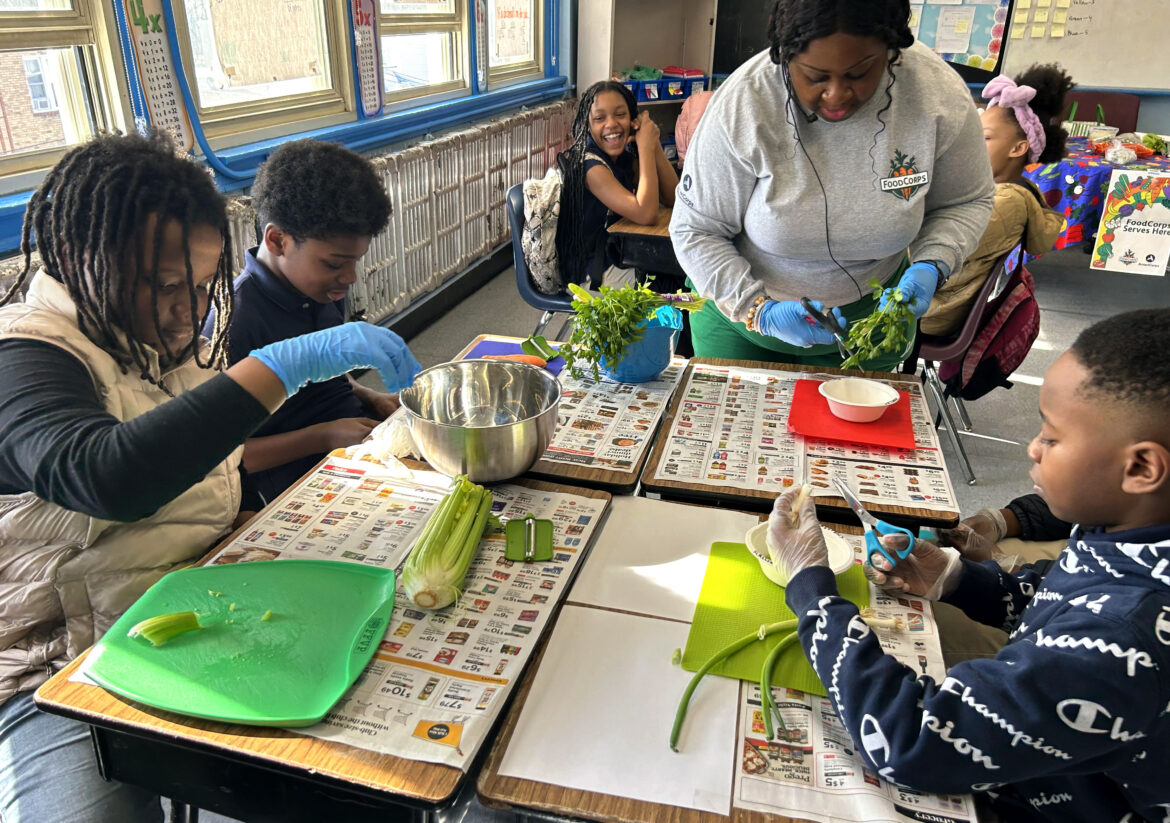If a rendezvous with Ronald McDonald is more accessible than your nearest grocery store, you might be living in a “food desert.” This term refers to communities with limited access to healthy, affordable food options.
More often than not, low-income areas have very few grocery stores in walking distance, making processed or unhealthy foods the primary option for underprivileged families.
Jasmine Mareano is the Director of Human Engagement and Advocacy at City Green Urban Farm in Clifton, New Jersey. She spoke about the origin of the phenomenon.
“How did it come to be that way? The big answer is a lot of the issues that we see in American life are like a vestige of systemic racism and where people were allowed to purchase homes and what resources were provided to communities,” Mareano explains.
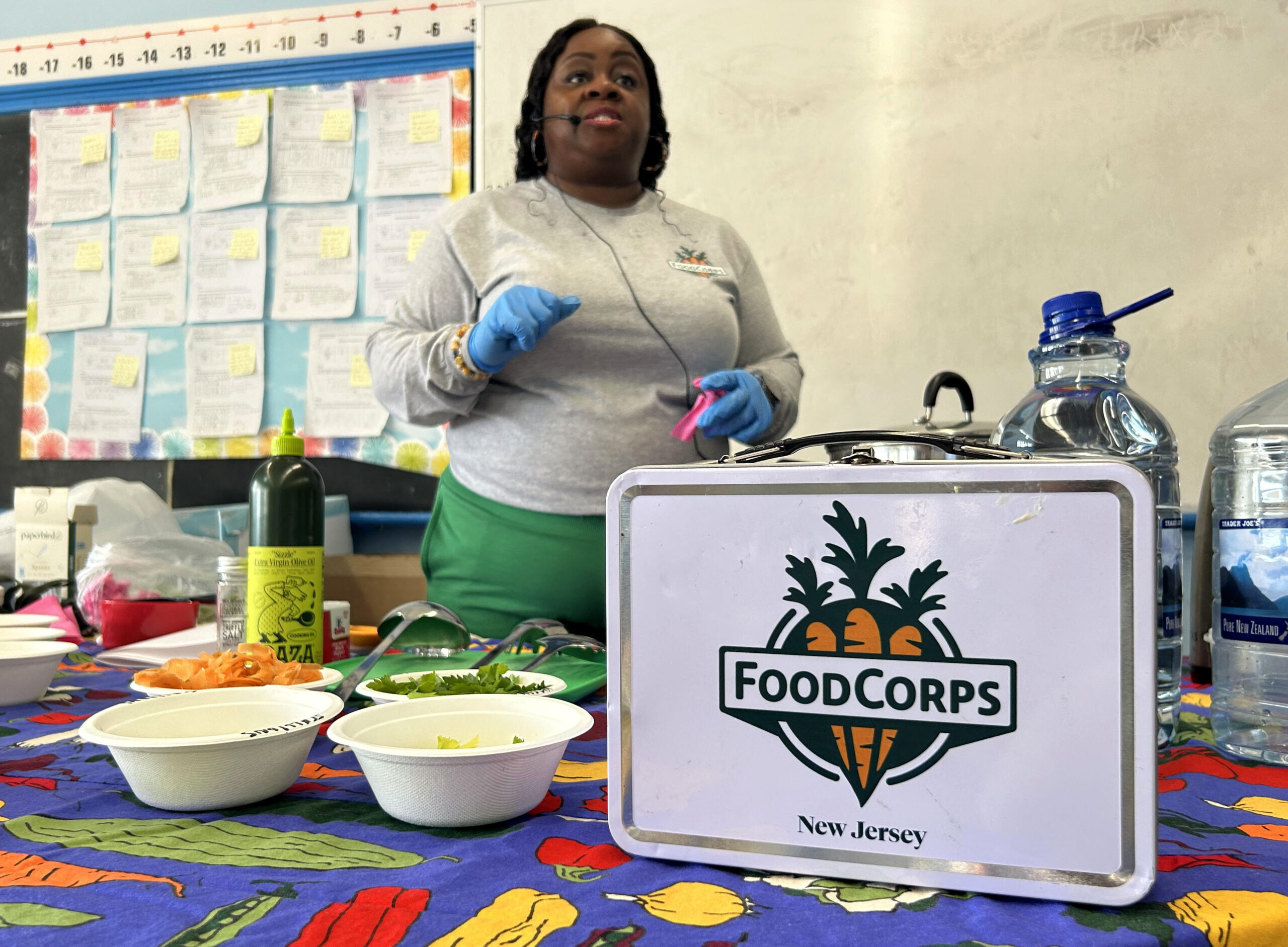
FoodCorps member Bridgette Byrd teaches a class of 5th graders at Hawthorne Elementary School in Newark, NJ the importance of eating clean. Danielle Vuono | The Montclarion
Struggles with food insecurity are prevalent in Newark, New Jersey. In urban areas like Newark, fast food or processed foods are more accessible and affordable than fresh produce. Despite these obstacles to healthy eating, organizations like Greater Newark Conservancy prioritize growth, nourishment and education.
Patrick Evans, the program manager of the Youth and Family department, elaborates on the efforts of the conservancy.
“We are trying to attack a lot of these issues, the environmental, the social inequity all throughout Newark, especially when it comes to food and urban agriculture,” Evans said. “My biggest focus is creating school gardens, making sure these students are getting hands-on lessons about food, doing taste tests, working in the gardens, getting their hands dirty.”
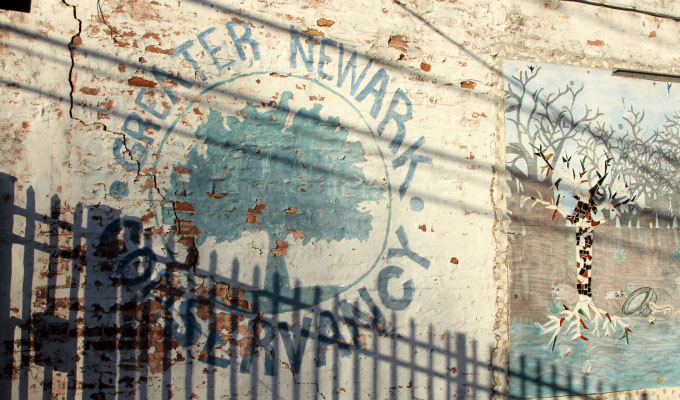
The setting sun casts a shadow on the brick wall of the Newark Greater Conservancy, an urban environmental center located in Newark, NJ. Danielle Vuono | The Montclarion
Greater Newark Conservancy is taking a proactive approach to combating food insecurity by providing younger generations with access to nourishing foods and the education they need to maintain a healthy diet and lifestyle.
According to the 2020–2025 Dietary Guidelines for Americans, more than half of American adults have diet-related chronic diseases like diabetes, heart disease and cancers. This unhealthy diet is linked to about 678,000 deaths every year, as stated by the Center for Science in the Public Interest.
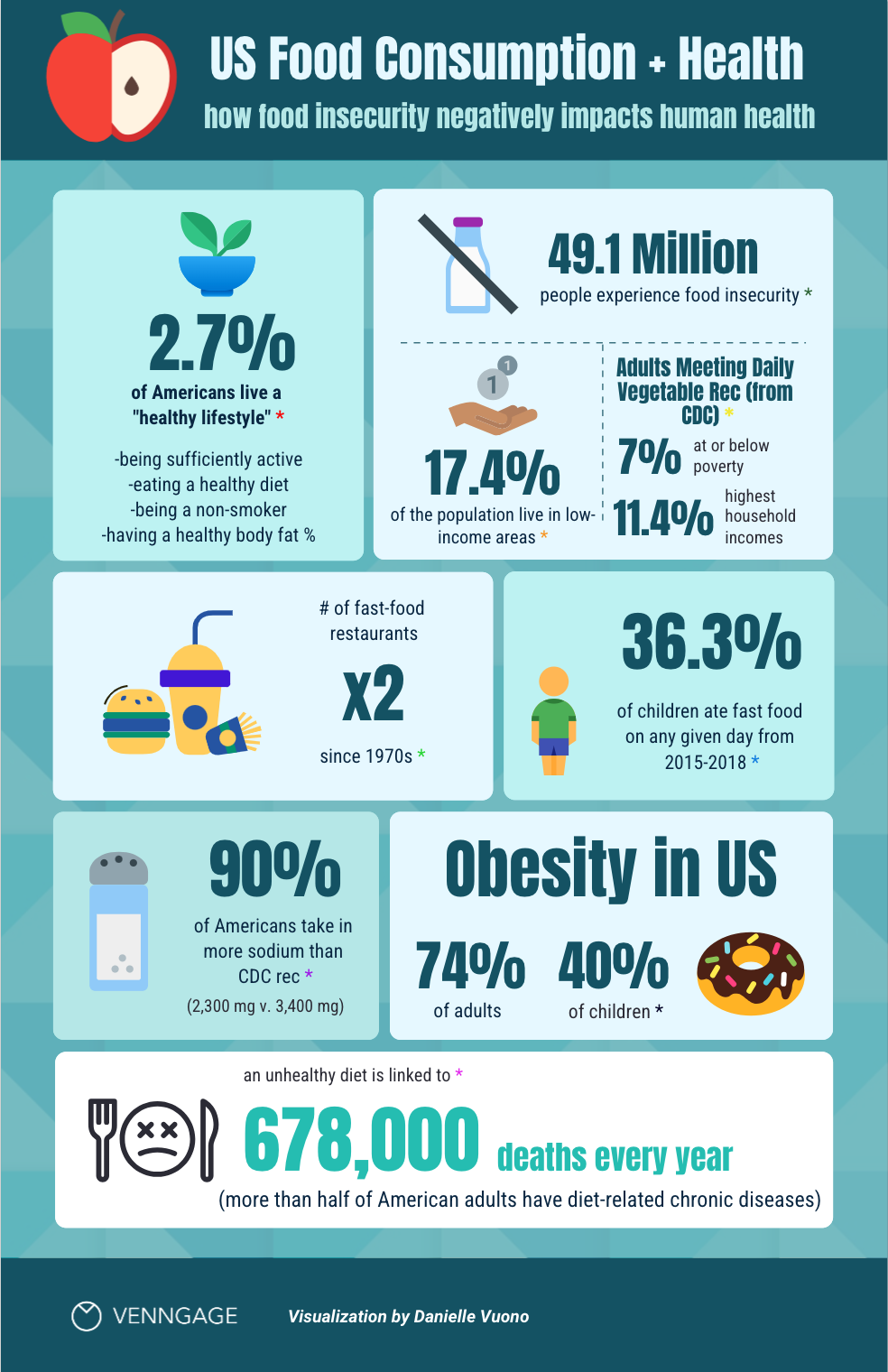
Jasmine Mareano believes a lack of access to a healthy diet could have detrimental effects to both mental and physical health.
“Let’s also think about the mental health [concerns] that come along with not having healthy foods… if your diet only consists of highly processed corn and soy products, it can affect your energy,” Mareano explained.
Greater Newark Conservancy works with a number of local organizations like FoodCorps, a nonprofit that partners with local schools to teach kids about nutrition, to promote their mission.
Greater Newark Conservancy has multiple FoodCorps members who teach lessons at schools in Newark, like Hawthorne Elementary School located next to Hawthorne Avenue Farm. The lessons allow students to grow, cook and taste food in the garden and in the classroom. FoodCorps member Bridgette Byrd travels to different schools teaching children the value of healthy eating.
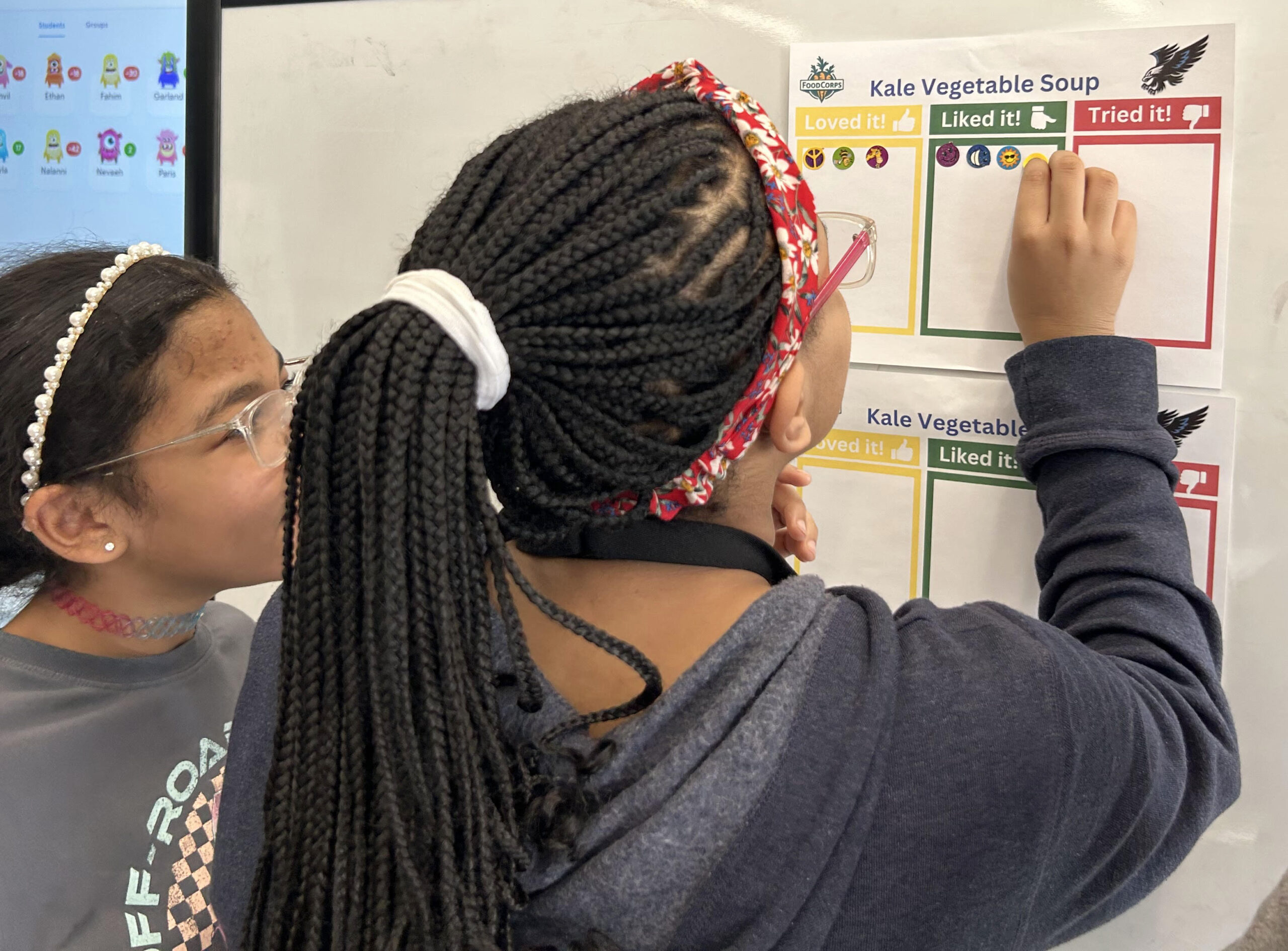
Hawthorne Elementary School students post their opinions on a soup they made with the assistance of FoodCorps. Danielle Vuono | The Montclarion
Patrick Evans and the Greater Newark Conservancy believe that the future is bright for urban communities if they learn the value of nutrition at a young age.
“We want all our kids to lead the best, longest lives possible, so getting them on the right track [nutritionally] is the best way to do that,” Evans said.
In the future, the conservancy will continue to work with local organizations like FoodCorps to give the community resources to grow, purchase and prepare fresh produce.

